Open water swimming, or wild swimming as it’s sometimes called, has always been popular in Ireland. Though never more so than since the country went into its first lockdown in March 2020.
When Covid restrictions forced people to look for alternatives to socialising and team sports, thousands turned to open water swimming. With health benefits like improved circulation, increased metabolism and improvements to immune systems, it’s no wonder open water swimming is so popular.
If you’re considering taking the plunge in Ireland’s open waters, use our guide below to get started.
How to start open water swimming for beginners
1. Find The Right Place To Swim
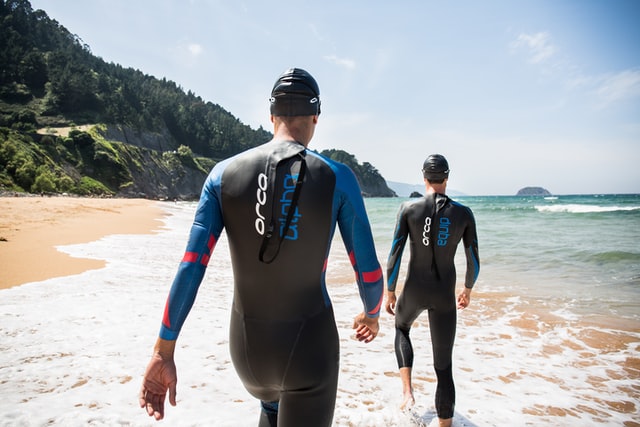
With more than 4000km of coastline and 70 thousand kilometres of inland waterways, Ireland was made for swimmers. Popular spots include Keem Bay on Achill Island, the diving tower in Galway’s Salthill and Lough Hyne in Cork.
To find a safe open water swimming spot near you, use one of these methods:
- Take a drive along the coast in the morning or evening to spot open water swimmers. Popular sites will attract more people, so look for clusters.
- Read this book: Wild Swimming in Ireland – Discover 50 Places to Swim in Rivers, Lakes and the Sea (Collins Press).
- Look on social media for open water swimming groups.
- Join the newsletters of open water swimming clubs.
- Start asking around – someone you know will know someone that swims locally.
- Look out for open water swimming events.
2. It’s Best To Train For It
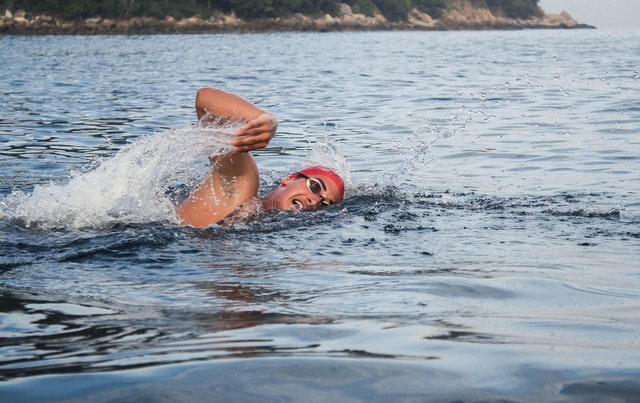
Open water swimming is very different from swimming in a pool. To start with, there is a temperature difference. The cold wild water will make your muscles contract which takes some getting used to. Then there is the water itself. Oceans, seas, rivers and lakes do not behave like the water in a swimming pool. They are very much alive and moving. You must be strong enough to swim against currents when necessary.
Training for open water swimming should entail a mix of cardio and strength work. Building up endurance in the water is a good idea too. This will help you acclimatise to the temperature and learn how your body reacts. Swimmers tend to tire quicker in open water, so regular training in and out of the water will help you enjoy your swim for longer.
3. Get a Coach
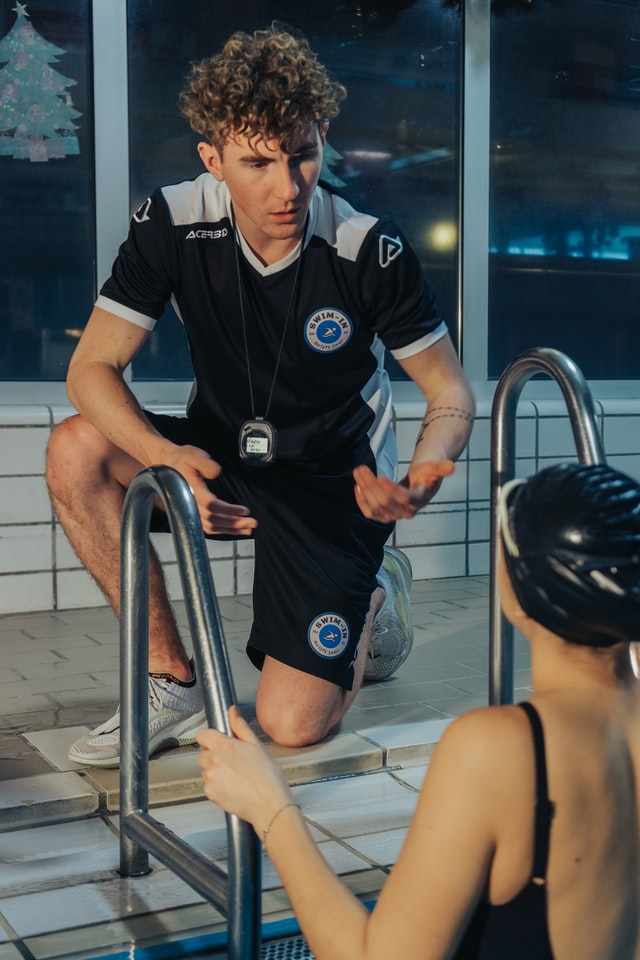
Even the most frequent swimmers can benefit from a swim coach. In open water, swimming technique matters more than it does for a casual swim in your local pool. Front stroke is the advised stroke for sea swimming as it is the most powerful and efficient. Breaststroke can be used in stiller waters, but again technique and strength matter.
Swim coaches can be booked at local swim centres or open water swimming centres.
4. Get to Know the Water
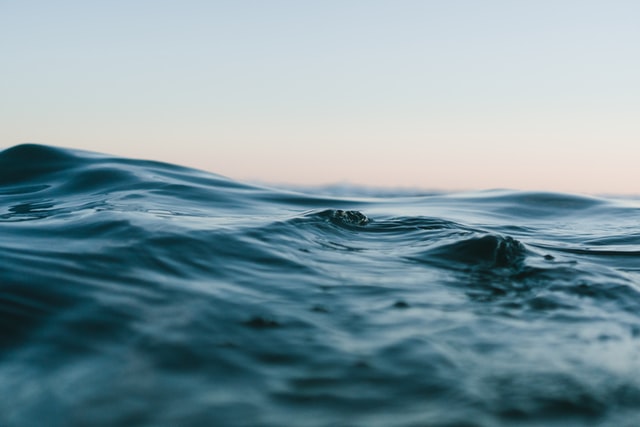
Every piece of open water is different and full of character. Water behaves differently in different environments too. Deeper water can have stronger currents and offers no place to rest when you tire. In the sea and ocean, wave patterns signal different things. Some indicate an ebbing tide others show signs of dangerous riptides.
Never become complacent about the water you swim in. No matter how well you think, you know it.
5. Be Ready for Seasonal Changes
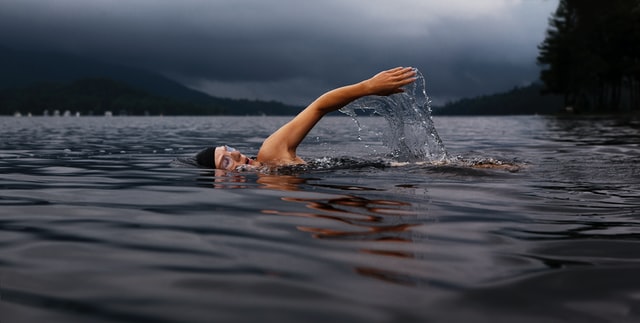
Technically you can enjoy open water swimming all year round. This depends on your endurance to the cold. As winter sets in, Ireland’s water temperatures can dip to below zero. Swimming in winter water is very different and something you should build endurance for every season. For colder waters, a thicker wetsuit may also be needed.
Look out for seasonal side effects too. After heavy rain, chemicals and contaminants can be washed into the open water. If there has been a downpour, it is best to skip your swim that day.
6. Take Someone With You
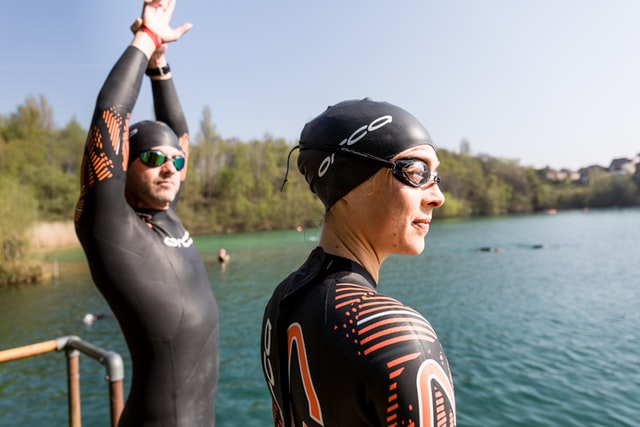
Safety is always the best course of action. When you swim in open water, try always to make sure someone is with you. This could be that you swim with a group at a set time each day or with a different friend each time. Even taking along a neighbour who fancies a change of scene is safer than risking getting into difficulties with no one to call for help.
7. Stay Aware
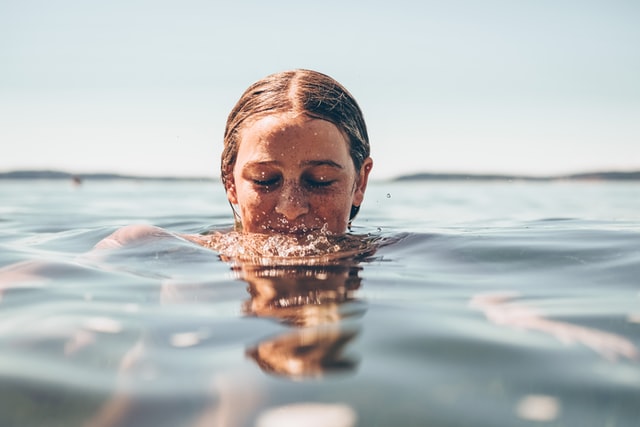
Open water swimming is serene. In most of Ireland’s wild water swim spots, you are guaranteed a peaceful experience like no other. Water lapping around you, bird song, the breeze in the trees. Being out in the water is like a form of natural meditation.
As much as we encourage you to enjoy the calming benefits of open water swimming, we urge caution. Staying aware of your surroundings is a must when swimming in open water. Hazards such as floating debris, underwater weeds, jellyfish and changing currents are always a risk. As is floating off course and further away from shore than is safe.
Open water swimmers use a method called sighting for staying present and also staying parallel to the shore. Sighting helps you swim in a straight line and keep an eye out for hazards. It is a vital skill for any open water swimmer.
8. Practice Water Safety
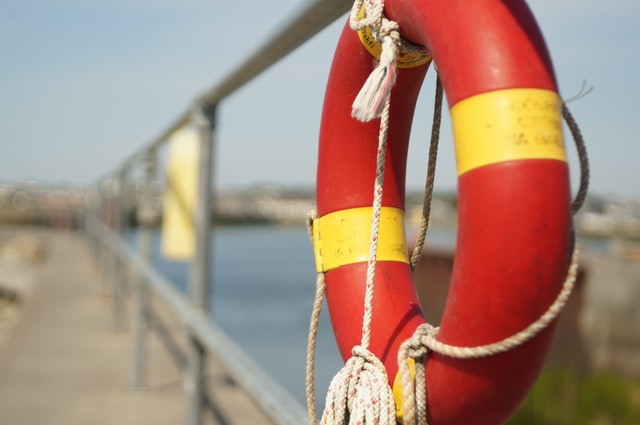
- If at all possible, always swim where a lifeguard is present.
- Never swim after consuming alcohol.
- Don’t swim alone.
- Never swim in a storm or rough water.
- Always wear appropriate swimming gear.
- Use a high visibility float.
- Be wary of and know the signs of hyperthermia.
- Only enter the water where you know it is safe.
- If a swimmer is in trouble, call 999/112.
- Don’t swim when you are tired.
9. The Ultimate Kit for Open Water Swimming
Open water swimming is more fun when you have the right swimming gear and equipment. Read on for a guide to your essential open water swimming kit.
A Towel Poncho
Spare your blushes with a poncho-style dryrobe. Essentially, this is a large towel with a hood, and they are perfect for popping over your head to take off your wetsuit privately.
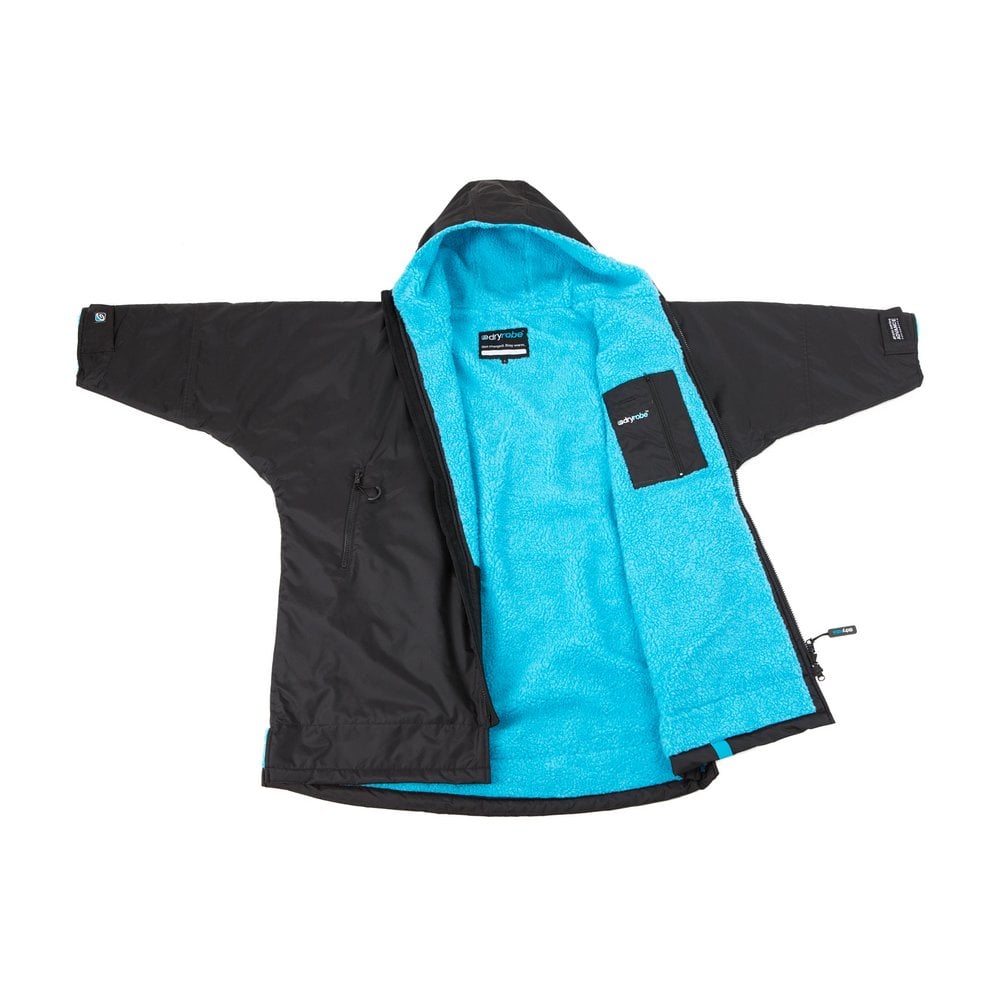
A Wetsuit
Even in the summertime, open water swinging in Ireland can get a bit nippy. A wetsuit traps in the heat to allow you to enjoy your swim for longer. There is a range of wetsuit available for men and women in sizes to suit everyone. A full-body wetsuit that covers the arms and the legs is the most popular for swimmers in Ireland. However, some people prefer to have their arms free in a sleeveless wetsuit or lower legs free in a shortie.
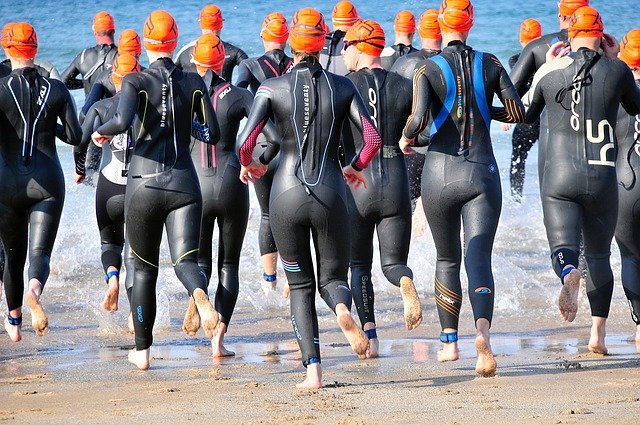
Goggles
Stop salty water and sediment getting into your eyes with a sturdy pair of swimming goggles. Regular googles are OK for open water swimming, but you might prefer a pair that covers more of your face for a firmer fit.
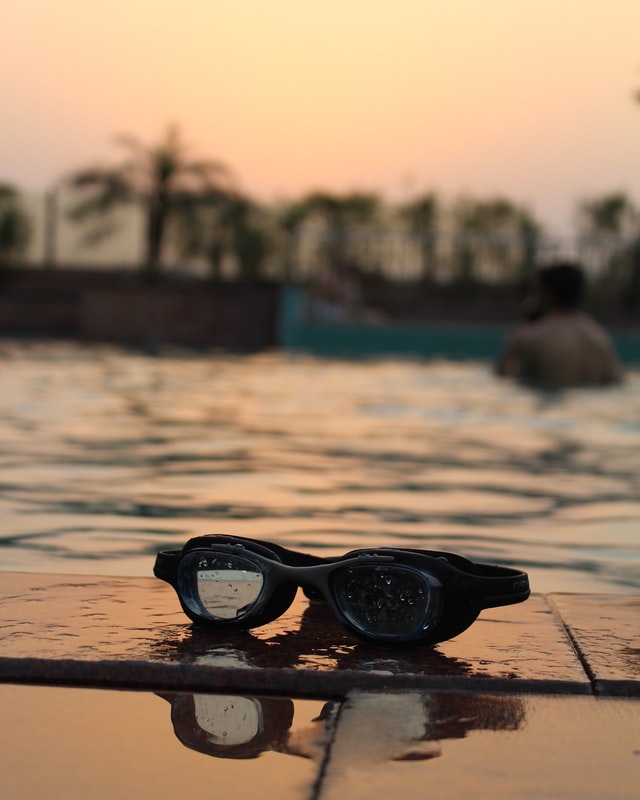
A Swimming Hat
Keeping your head warm is an absolute must for open water swimming. A bright coloured swim hat will make you easier to spot in the water. Choose a swim hat that is waterproof and rinse in clean water after every swim. After swimming, dry your hat but leave it on with a warmer hat over it until you are dressed.

A Swim Bag
The best choice of bag for swimming is a waterproof bag. Not only will you have wet towels to put in it, but the riverbanks and shorelines are sure to be damp.

A Watch
For timing your speed and for making sure you don’t stay in too long, use a GPS water-resistant watch. Used for training or racing, a GPS watch will give you accurate stats and record your data for analysis.
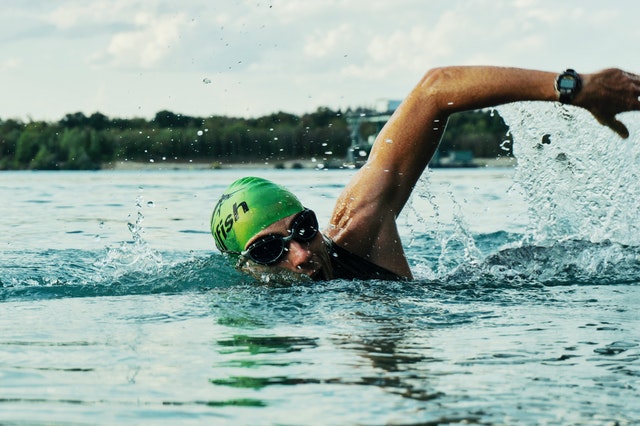
Why Choose The Edge For Your open Water Swimming Needs?
At The Edge, our team at our Cork store is made up of competitive swimmers and triathletes. All on hand to offer you their experienced advice.
We won’t be beaten on price or service and offer free delivery on orders over €50 to anywhere in the Republic of Ireland.
The Edge is Ireland’s leading Bike, Running Swim and Triathlon Shop in Ireland. We offer a great choice of thousands of products with new stock arriving regularly. To contact our sales team and for advice, call us on +353 (0)21 432 0522 or email [email protected].



